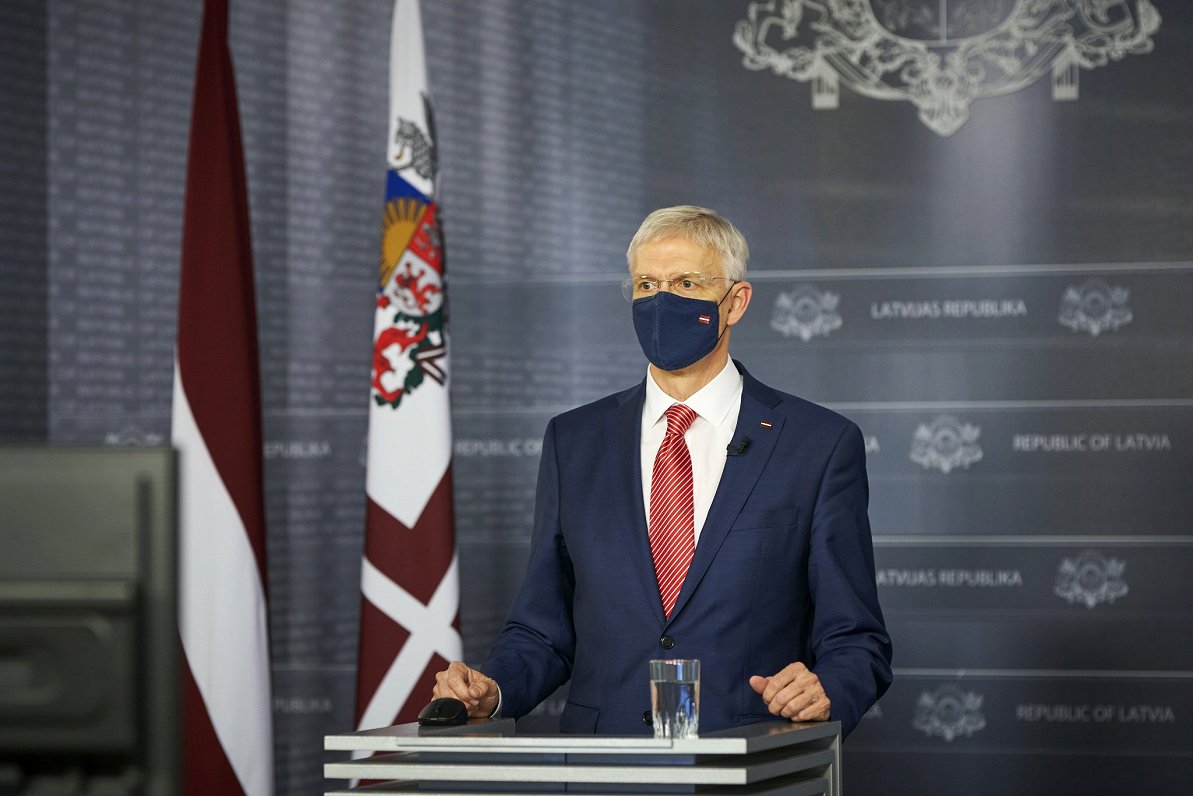The prime minister said that the pandemic is far from over and it's still a long way to go to overcome the crisis. The government is therefore planning a phased transition from outright restrictions to a safe and sustainable mode of living. That means seeking solutions that would enable the economy to function and make in-person education more available.
"This is a challenge, because if we proceed too fast, we can expect the same that happened in other countries - a surge in infections, which we do not want," Kariņš said, adding that it is necessary to find a way into a safer life by following safety measures.
Kariņš stressed that the upcoming discussions in the government on a revision of Covid-19 restrictions should not be regarded as an attempt to relax the measures because nothing is over yet. If Covid-19 incidence figures decrease, small shops might be allowed to reopen and more pupils might be allowed to return to classrooms.
"Basically, we must not allow any gatherings. Indoor gatherings are especially dangerous. Working from home is recommended also after the Easter holidays, because this is a safe way to prevent infections among employees. Education is a big challenge too, because schools are a large category," Kariņš said.
As for the current epidemiological situation, it has been concluded that the third Covid-19 wave has reached Latvia. "Thank God, it has not caused infections to spike steeply because people are following the rules," the prime minister said.
"We have no plans to open everything up or relax. We need to balance people's needs and keeping them from falling ill. Instead of lifting, we are rearranging the restrictions, making them more sustainable," Kariņš said.
The prime minister urged people to stay alert, not to relax and to refrain from visiting relatives and friends during the Easter holidays.






























